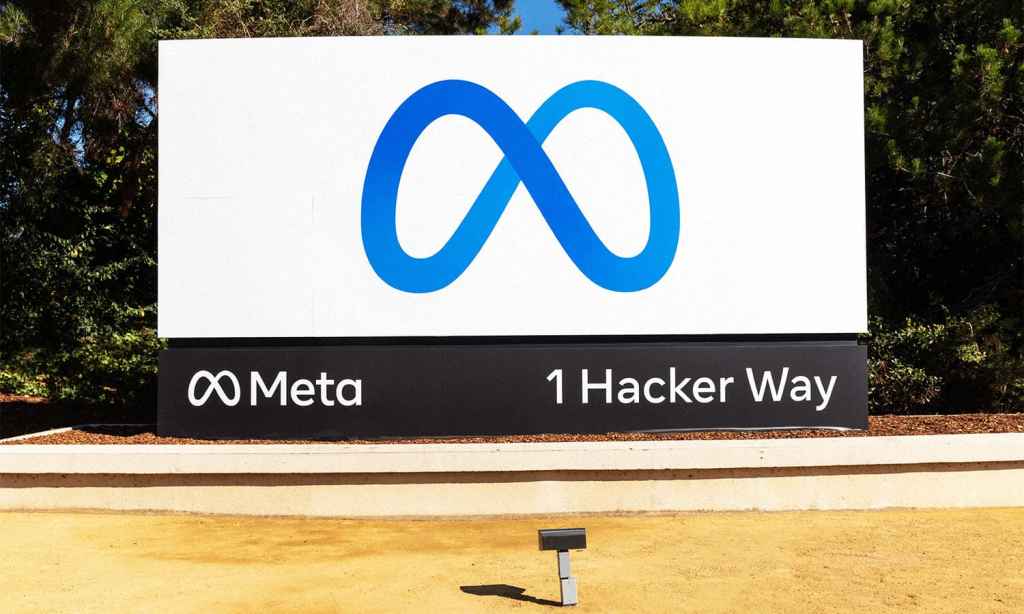Mark Zuckerberg has announced the rebrand of his company Facebook with the launch of the new name, Meta.
Meta is the name of the company formerly known as Facebook which owns social media companies including the still-titled Facebook, the social media platform, Instagram as well as WhatsApp and Oculus.
To be clear, the social media site Facebook will continue to be called Facebook but the company which owns it will now be called Meta. It’s a technical restructuring of the internet giant that Zuckerberg hopes will demonstrate the organisation’s key focus on building the next generation of the internet known as the metaverse.
Zuckerberg announced the changes at the Facebook Connect 2021 conference and, in a statement posted to the site that he founded, wrote that this is a new chapter for both his company and the internet.
“The next platform will be even more immersive — an embodied internet where you’re in the experience, not just looking at it. We call this the metaverse, and it will touch every product we build,” he wrote.
“From now on, we will be metaverse-first, not Facebook-first. That means that over time you won’t need a Facebook account to use our other services. As our new brand starts showing up in our products, I hope people around the world come to know the Meta brand and the future we stand for”.
In explaining the name change, Zuckerberg explained that he “used to study Classics” and that the word ‘meta’ in Ancient Greek means ‘beyond’
“For me, it symbolises that there is always more to build, and there is always a next chapter to the story. Ours is a story that started in a dorm room and grew beyond anything we imagined; into a family of apps that people use to connect with one another, to find their voice, and to start businesses, communities, and movements that have changed the world”.
“I’m dedicating our energy to this — more than any other company in the world. If this is the future you want to see, I hope you’ll join us. The future is going to be beyond anything we can imagine”.
This year’s annual Facebook Connect conference brought together augmented and virtual reality developers, content creators, marketers and others to “celebrate the industry’s momentum and growth”, according to promotional materials.
This year’s virtual event explored what experiences in the metaverse could feel like over the next decade — from social connection to entertainment, gaming, fitness, work, education and commerce.
Facebook also announced new tools to help people build for the metaverse, including Presence Platform, which will enable new mixed reality experiences on Quest 2, and a $150-million investment in immersive learning to train the next generation of creators.
Will Easton, Managing Director of Australia and New Zealand for Meta said: “The metaverse is the next evolution in online social technology and will help us connect in ways not yet possible today. While nothing beats being together in person, recent months have highlighted how, when that’s not possible or practical, the digital world can still help us feel connected. The metaverse will help us get closer to feeling that in-person presence through sharing a space rather than a screen.
“Facebook isn’t going to build, own or run the metaverse on its own, we will be collaborating at every stage with policymakers, experts and industry partners. There are already a wealth of Australian companies and creators working in this space, including fashion designers, gaming and VR experience creators, academics and marketers experimenting with new immersive formats. Australia has an opportunity to be on the forefront of this technology even at this early stage of its development.”
Incidentally, or perhaps purposely, the name change also separates the company from the criticisms of the social media platform that have been dominating headlines over the past few weeks.
Former Facebook employee Francis Haugen has been speaking to governments around the world about the “toxic” environment that Facebook and Instagram creates for its users and young people in particular.
Haugen has said that the company’s platforms are not only highly damaging to the mental health of users, but that the company itself is very aware of these issues and chooses not to do anything about it for fear of affecting their bottom line.
Zuckerberg’s statement written on the social media site echos a similar statement the founder wrote in an internal Facebook post to prime his employees for the creation of the Metaverse.
Zuckerberg is not the only tech personality who is invested in its creation and, as he says, the Metaverse will not be created by any one company. Facebook, or Meta, is however staking its claim on the future with this name change. While there is contested ownership and development claims over who gets to build this next iteration of the internet, Zuckerberg is intrinsically linking his company to the development.
Read more stories from The Latch and subscribe to our email newsletter.







